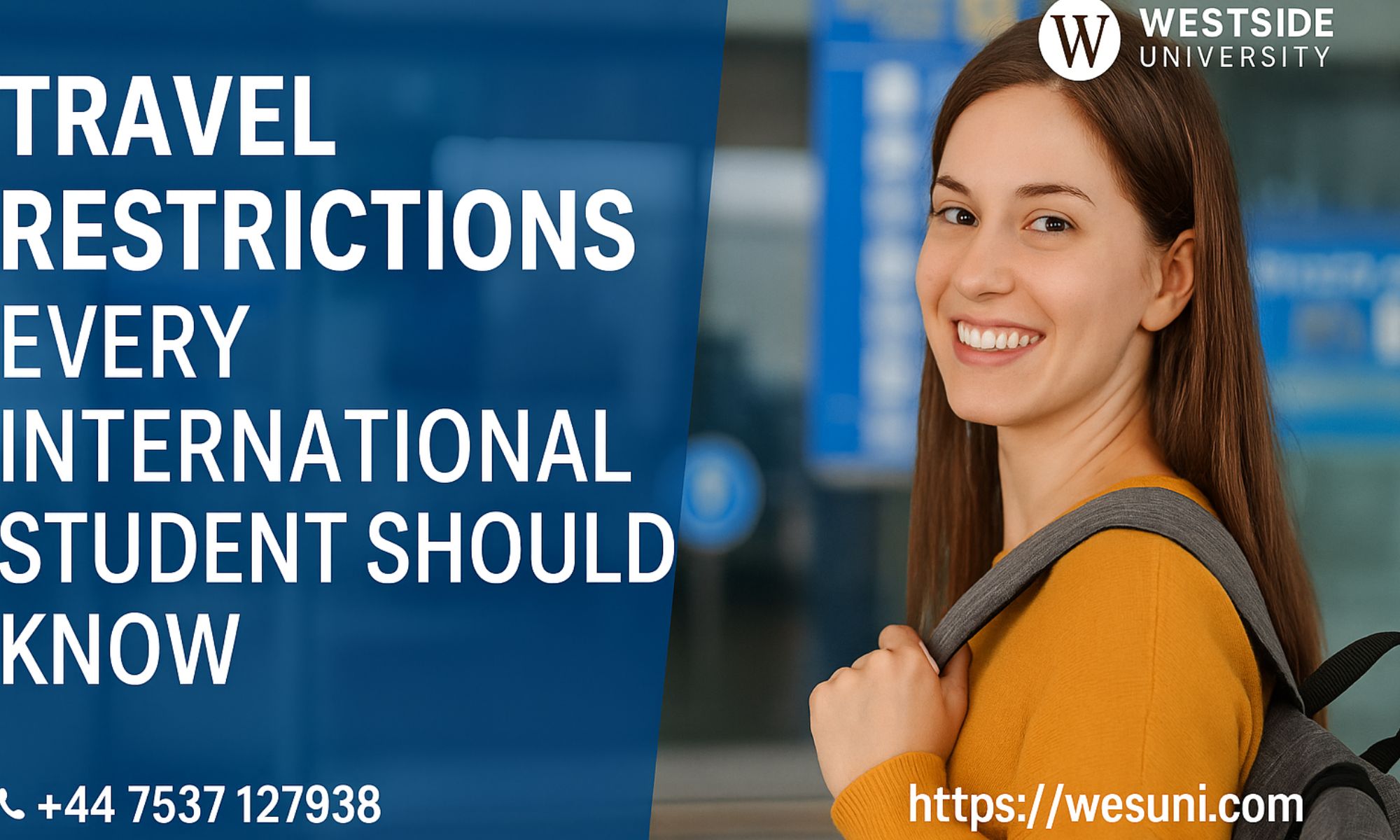Studying abroad is one of the most enriching experiences a student can have. From gaining access to world-class education to immersing yourself in a new culture, the journey is filled with opportunities for personal and academic growth. However, one major factor that every international student must prepare for is travel restrictions.
Global travel has become increasingly complex due to visa rules, health regulations, political tensions, and unexpected emergencies like pandemics or natural disasters. Knowing the latest travel restrictions helps you avoid unnecessary stress, plan effectively, and ensure a smooth transition to your host country.
In this comprehensive guide, we’ll cover key travel restrictions every international student should know — from visa requirements and entry rules to financial regulations and re-entry permits.
✈️ 1. Visa Restrictions and Entry Rules
Your student visa is your primary ticket to studying abroad. But each country has specific requirements:
- Visa validity periods: Some countries, like the U.S., issue visas valid for the duration of your program, while others, like Germany, require yearly renewals.
- Entry conditions: You may need to show proof of acceptance at your university, financial statements, and accommodation details upon arrival.
- Restricted entry points: Certain visas may only allow entry through specific airports or checkpoints.
👉 Pro Tip: Always carry physical and digital copies of your visa, passport, and acceptance letter.
🦠 2. Health and Vaccination Requirements
Many countries now have strict health-related entry conditions:
- Vaccinations: Countries like the UK or Australia may require proof of vaccinations such as yellow fever, COVID-19, or tuberculosis testing.
- Medical insurance: International students are often required to have health insurance before entering.
- Quarantine rules: Some destinations may impose quarantine periods during public health crises.
👉 Pro Tip: Check your host country’s official embassy website for updated health restrictions.
💳 3. Financial Documentation Restrictions
Students often need to prove they can support themselves:
- Bank statements: Many visa offices require recent financial records showing you have enough funds.
- Blocked accounts: Countries like Germany require students to deposit a set amount into a blocked account before entry.
- Currency restrictions: Some countries limit how much foreign currency you can bring in or take out.
👉 Pro Tip: Use trusted financial services like Wise or Revolut for international transfers and avoid carrying large sums of cash.
🌐 4. Work Restrictions
While studying abroad, students often seek part-time jobs to cover expenses. But working rights differ by country:
- United States: Work limited to 20 hours per week on-campus during term time.
- Canada: Allows up to 20 hours off-campus per week with a study permit.
- Australia & UK: Similar restrictions, though exceptions may apply during holidays.
Violating work restrictions can result in visa cancellation.
👉 Pro Tip: Always clarify your visa’s work conditions before applying for a job.
🔄 5. Re-Entry and Exit Restrictions
Students often travel back home during holidays, but re-entry rules matter:
- Some visas expire upon leaving the country.
- Others require a multiple-entry endorsement.
- Certain countries may impose travel bans or exit permits during political unrest.
👉 Pro Tip: Confirm your visa’s re-entry policy before booking international flights.
🚨 6. Political and Security Restrictions
Geopolitical tensions can lead to sudden restrictions:
- Sanctions or diplomatic conflicts may bar entry for certain nationalities.
- Unrest in your host or home country can trigger unexpected travel advisories.
👉 Pro Tip: Register with your embassy abroad so you can receive emergency updates.
📦 7. Customs and Baggage Restrictions
Every country has rules about what you can bring across borders:
- Restricted items: Some foods, plants, and medications may be banned.
- Electronic devices: Countries may require you to declare laptops or valuable gadgets.
- Duty-free allowances: Exceeding import limits may result in heavy taxes.
👉 Pro Tip: Research customs regulations to avoid losing valuable items at the airport.
🌟 8. Special Pandemic/Emergency Restrictions
COVID-19 taught us that rules can change overnight. Borders may close, flights may be canceled, and new testing requirements may arise. Students must be flexible and proactive.
👉 Pro Tip: Always have a contingency plan for online learning or delayed travel.
🧭 Final Thoughts
Travel restrictions are an unavoidable part of studying abroad, but with careful planning, you can navigate them smoothly. By keeping up with visa rules, health requirements, financial conditions, and re-entry policies, you’ll be better prepared for your international journey.
At Westside University (W), we guide students through every step of the process — from admissions and visas to housing and travel advice — ensuring you start your study abroad journey with confidence.
📞 Need expert guidance? Call us at +44 7537 127938 or apply today at https://wesuni.com.
✨ Call-to-Action
- ✅ Top of Post: Stay updated on travel rules with Westside University. Apply at https://wesuni.com/apply.
- ✅ Middle of Post: Avoid surprises abroad. Let Westside University guide you. Apply at https://wesuni.com/apply.
- ✅ End of Post: Start your safe study abroad journey today — https://wesuni.com/apply.


